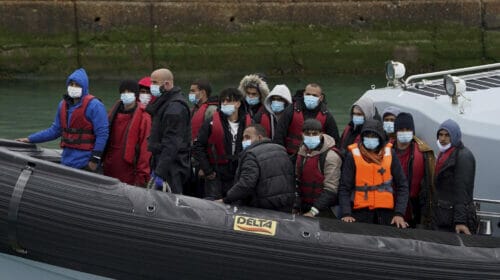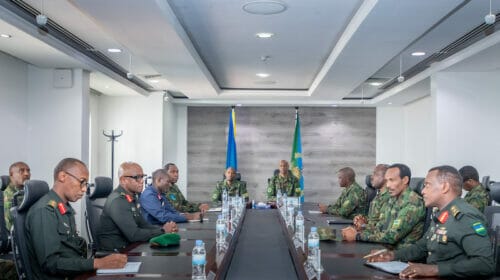Rwanda: The Three Mistakes of Paul Kagame
James Kabarebe, the Rwandan Minister of Defense, lead off publicly referring to Mr. Karegeya, his former comrade in arms, as a “rascal who got what he deserved.”
In turn Mr. Kagame, in one of his tirades that he regularly cherishes, warned his political opponents clearly alluding to the fate of Mr. Karegeya that “treason has consequences. Whoever betrays our cause or wishes harm to our people becomes a victim. It is only a matter of how such a person becomes a victim…“ Later, in an interview with the weekly Jeune Afrique, Rwanda’s President drove the nail deeper into the coffin saying that “terrorism has a price, betrayal a price […]. People are killed the way they have themselves killed. Everyone gets the death he or she deserves.”
Following this incendiary and – to say the least – compromising speech, even Washington , through the voice of Jennifer Psaki, Spokesperson for the State Department , expressed concern against its ally and denounced “politically motivated murders of prominent Rwandan exiles” before adding , in the same breath that” “President Kagame’s recent statements about ‘consequences’ for those who betray Rwanda are of deep concern to us.”
But how could Kagame, a seasoned political leader, have yielded to a devastating emotion in such circumstances? By allowing the barons of his regime to behave in such a manner, he made three mistakes he might regret in the very near future.
First mistake: to ignore that the world has changed and that the international community’s watch state security has become tighter than it was 20 years ago. The murder of Mr. Karegeya was committed outside the Rwandan national borders, let alone on the land of Nelson Mandela, the legendary hero that the world mourned just a few weeks ago to honour his great legacy for the hard struggle for democracy and reconciliation in South Africa. And Kagame, whose power has lost none of its quick reflexes to handle both violence and the conditions to justify it, would like to export state terrorism to South Africa! It seems that the South African police investigation is underway to determine the ins and outs of this heinous murder. But we can assume that if the responsibility of the Rwandan regime should be established in this case, this terrorist act would not go unpunished by South Africa which, as everyone knows, has the diplomatic, political and military means to enforce state authority throughout its territory.
Second mistake: M. Kagame believes that everything is permitted and he can afford to kill whomever he wants with impunity. The acute crisis that Rwanda experienced in the aftermath of the 1994 genocide paved the way for other reprehensible acts. Rwandan authorities, who were expected to promote national reconciliation, have become pyromaniac firefighters of a noxious atmosphere of arbitrariness generating a sense of general insecurity that has invaded Rwandans. For some, the future is non-existent because they are too insecure. For others, only the present, guaranteed for what it is, can offer some guidance. Yet for others there is no past because it is too painful; it cannot be addressed because – oh danger- you jeopardize the immediate survival. The regime endeavours to thwart any notion of solidarity by fostering a climate of permanent fear and suspicion among neighbours. A perverse order where violence is the law. In view of excerpts from the speech mentioned earlier, the ‘Gospel of Paul Kagame‘ does not teach anything else! Can this de facto impunity continue indefinitely? And what if Rwandans ended up standing up as one!
Third mistake, more serious from a political stand point: Kagame has publicly declared that his government will stop at nothing to hunt down his political opponents, be they Tutsi. This faux pas makes M. Kagame appear as a bomb-maker tinkering with his incendiary device and its imminent detonation. Vigilance is required. The struggle for democracy and human rights must continue. Work to break down the barriers between Rwandans must be relentless.
In light of the recent events, President Kagame continues to fuel questions from Rwandans and public opinion on his direct involvement in the assassination of President Habyarimana, which triggered the genocide that followed. By declaring a ruthless war against “whoever betrayed our cause or wishes to bring harm to our people“, Rwanda’s president reveals his fatal project… By what divine legitimacy does this president assume that he has the right to kill whomever he wants , wherever they live ?
Augustin BAZIRAMWABO and Etienne MASOZERA, Gatineau, Quebec


